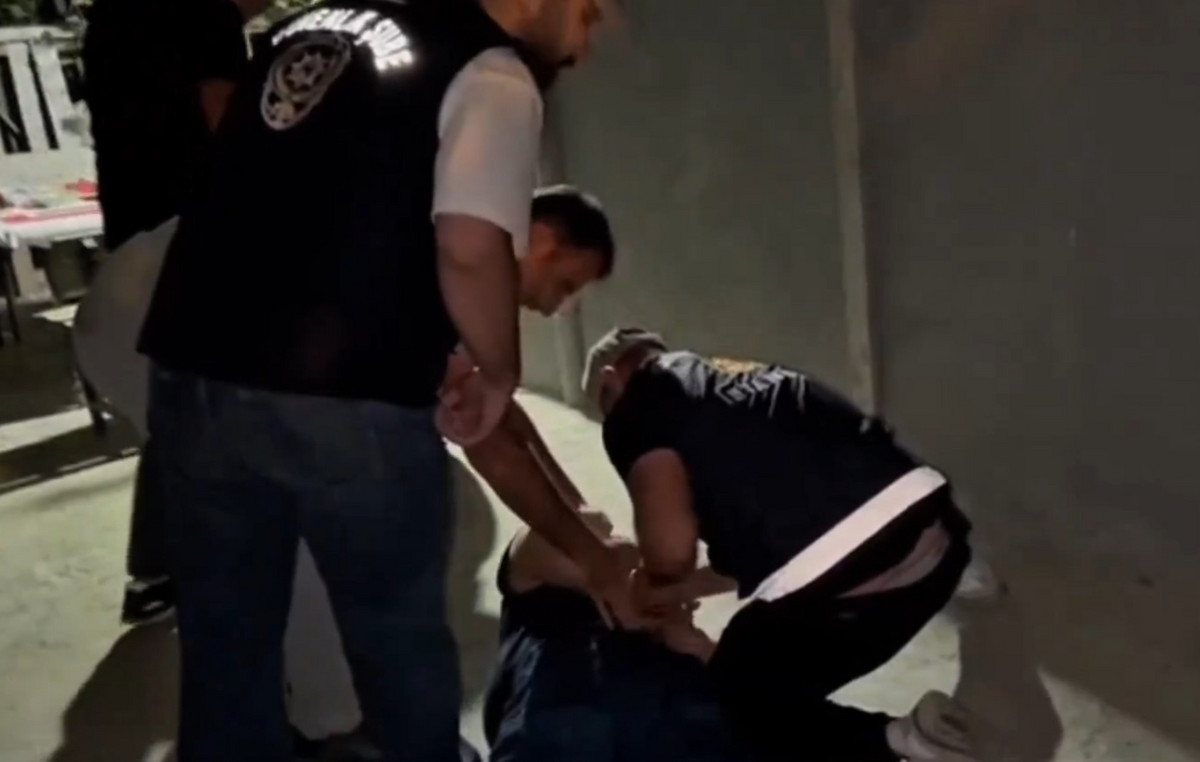Food with a nauseating odor, an outbreak of dermatitis and tuberculosis, reports of physical and psychological torture are serious issues identified by experts from the National Mechanism for the Prevention and Combat of Torture (MNPCT) in prisons in Rio Grande do Norte.
Between November 21 and 25, 2022, they inspected the Ceará-Mirim Public Prison and the Alcaçuz Prison Complex, both in Greater Natal, listening to prisoners and gathering information that culminated in a report that will be presented to the authorities at the beginning of next week.
“The main issues found in both units were: food problems, lack of health care and torture. It’s not just a precarious diet, but it’s a non-existent diet many times. From the moment you give food that is spoiled and unfit for consumption, you don’t have food. You can clearly see the weight loss of the person imprisoned due to the lack of food”, reports Bárbara Coloniese, MNPCT expert.
She inspected the potiguar prisons in January 2017, the year of the biggest rebellion in the history of the potiguar penitentiary system that culminated in the decapitation and dismemberment of 27 prisoners linked to the Crime Syndicate (SDC) at the Alcaçuz Prison Complex, and in November of last year .
The conditions of custody are among the reasons given in statements released by the Crime Syndicate for the series of attacks that the State is witnessing this week. Coordinated crimes, which include burning vehicles and shooting at police and judicial offices, reached dozens of cities in Rio Grande do Norte, causing fear among the population and affecting the provision of public services.
The murder of a merchant in the capital on Wednesday (15) is related to the attacks, according to local police.
According to Coloniese, there is a systematic violation of rights in state prisons, such as lack of health care as a whole. “We did the on-site verification of the arrival, the follow-up of the entire process until the delivery [da alimentação ao preso] and, indeed, many of these foods arrive unfit for consumption with a sour smell. Even with a very powerful mask in relation to prevention against Covid-19, it was possible to smell the sour, nauseating smell of food that was completely unfit for consumption. They [os presos] they have a very precarious diet”, emphasizes the expert.
For her, this is just one of the serious points in relation to the lack of structure found by experts in the prisons visited.
Six years after what became known as the “Licorice Massacre”, provoked by the dispute for power between two criminal factions, the Primeiro Comando da Capital (PCC) and the Crime Syndicate, Coloniese claims that nothing has changed. On the contrary, it got worse. She makes this claim claiming that the images taken by experts prove the scenario.
“From 2017 to 2022 there were no changes. The scenario is even more complicated. The use of violence is very strong. The way this prison system works is based on the systematic practice of physical and psychological torture. Since we went to Rio Grande do Norte, we have been trying institutional meetings with the Court of Justice, with the Public Ministry, with the governor, but still without success. We are alarmed by the situation in the prison system with a lot of torture, violence and violation of rights. We have tried to alert the authorities, but so far we have not been able to have a dialogue. We remain available to expose the issues and change this scenario with the guarantee of fundamental rights as stated in the Penal Execution Law”, he emphasizes.
healthcare
Bárbara Coloniese defines as shocking the absence of proper health professionals in the framework of the Secretary of State for Penitentiary Administration (Seap) and denounces that, if any prisoner has an indisposition with a criminal police officer or vice versa, his medical care is neglected, according to the reports collected. In the cells of Ceará-Mirim and Alcaçuz, she said that there is a frightening number of inmates with various dermatitis, tuberculosis, among other infectious and contagious diseases.
“We have never seen so many people with tuberculosis. During the interviews, we saw people spitting blood. It was quite an alarming scene. There is a shortage of medication. There is a lack of assistance in the health area. The cells are overcrowded and unhealthy. Prisoners only access water, which is not drinkable, three times a day for 30 minutes at 7am, 12pm and 5pm. They are unable to meet the needs of something basic, which is access to water”, denounces the expert.
In addition, she points out that the screening of prisoners who need medical attention is done randomly by the criminal police themselves. “They don’t have the technical capacity to do that. Who should do this are the health professionals among the people in custody to find out what their health problems are. These are the people who have the technical knowledge. This also generates enormous subjectivity in this selection, in this screening for care. If a criminal police officer has a problem with a certain person, he will never be dealt with. There is, also, a discontinuity in care,” she says.
Coloniese says that, today, care is provided by health professionals assigned by the State Department of Public Health (Sesap-RN) in a number below the necessary, which generates discontinuity of treatment, in most cases.
Another issue involving the prisoner’s health that will be described in the MNPCT document concerns the absence of personal hygiene kits delivered by the State to prisoners. “This violates the Penal Execution Law. Families become responsible for taking these contributions of hygiene and cleaning kits, which is absurd. People who have families unable to make these contributions are completely unassisted.”
Torture
The MNCPT points out that there is an enormous weakness in investigating allegations of torture in prisons in Rio Grande do Norte. Since 2017, when the Tactical Force for Penitentiary Intervention (FTIP) was sent by the Ministry of Justice to control the rebellion in Alcaçuz, new means of containing prisoners, considered violent, have been implemented.
“Since the FTIP passed through Rio Grande do Norte, in 2017, the ‘procedure’ was implemented. From the training of criminal police officers to live a routine as if they were in a moment of crisis, there is an enormous and unjustified rigidity. All the time, detainees are in ‘proceedings’. From the ‘procedure’ voice command, the arrested people need to run, regardless of what they are doing, they must go to the ground, line up and clasp their hands over their heads without making any noise, until a new voice command tells them to get out of that room. position. This can take a long time and it happens on the courts, during sunbathing. They get burned”, says Coloniese.
She points out that the position in which they are forced to stay for varying intervals of time causes stress and pain. Images that illustrate the MNCPT document show prisoners sunburned, injured and with physical limitations supposedly caused by the truculent actions of the criminal police.
“The use of this procedure in a systematic way is absurd and it generates a lot of psychological torture, as well as physical. We spoke with the prisoners, to collect the reports, and explained that they could stay in a relaxed position and when they heard a few steps or noises, they would run and put themselves in a procedure position. There is a very big trauma in relation to this and many trembled. If the inmate leaves the procedure position, he is hit with pepper spray and rubber bullets. We have photos that prove it. They have this narrative and the physical marks to prove it”, says the expert.
According to the anthropologist at the Federal University of Rio Grande do Norte (UFRN) Juliana Melo, who has been studying prison systems in the region for over ten years, the 2017 massacre resulted in the implementation of an even “tougher” disciplinary policy within the state’s prisons. , limiting the entry of food and intimate visits.
“This regime has characteristics of a disciplinary regime for those who are imprisoned in federal regimes, but without being in a federal prison. So there are overcrowded cells and systematic torture,” he said. She reports that the restrictions adopted after the pandemic made it difficult for researchers and other civil society entities to follow these measures.
The prison situation, according to the researcher, became a “ticking time bomb”, and would be one of the main backgrounds of the chaos that is seen today in the State. “The authorities in Rio Grande do Norte say that this is not systematic, that rubber bullets are used only in certain situations, for example, but this is systematic, it has been denounced over the years. It’s known to happen, it’s in there, and the inmates just can’t take it anymore.”
Government says take action
In a press conference, the holder of the Secretary of State for Penitentiary Administration (Seap), Helton Edi Xavier da Silva, said he had not yet received the report.
“At the end of last year, there was this visit and there was a meeting between the Mechanism and the State Government, as well as the CNJ, where some issues were presented. Since then, we have been conducting the event, taking the measures that we thought were relevant in view of that first information, as well as informing the institutions that have a part in it. The Public Ministry with the investigations, the Justice, the Civil Police… Since then, we have been adopting these measures”, comments the secretary.
At the end of last year, after the inspections, the MNCPT experts were received by the then vice-governor, Antenor Roberto.
Source: CNN Brasil
I’m James Harper, a highly experienced and accomplished news writer for World Stock Market. I have been writing in the Politics section of the website for over five years, providing readers with up-to-date and insightful information about current events in politics. My work is widely read and respected by many industry professionals as well as laymen.







